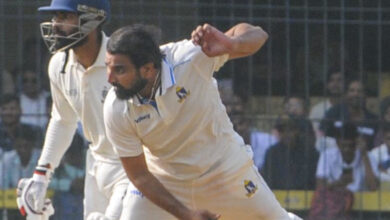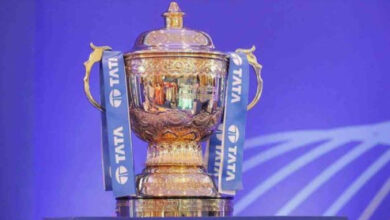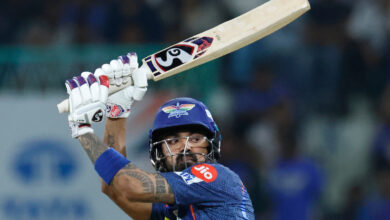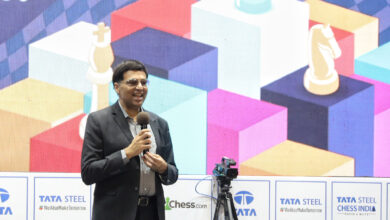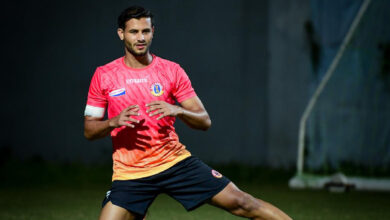FIFA World Cup: Dutch have Gaal to stop Messi in quarter-final

In his last dance as a coach, Louis Van Gaal is more like a cuddly grandfather putting on his best show to entertain the audience. Far gone is the sombre, detached ideologue of Nou Camp past, or the peevish, grumpy custodian of Old Trafford days. He cracks jokes, hugs players, plants kisses – “big, fat kiss” – in press conferences, and laces humour with pithy observations and analysis, defusing questions with undertones of insult.
Like when a journal sought his opinion about the Argentina winger Angel Di Maria calling him the “worst manager he has played under.” He broke into peals of laughter, gathered his poise and said: “He had a tough time there, burglars broke into his house, he found it difficult to settle in the city, but that’s rare, a player telling me that I am a bad coach. Usually, it’s the other way around, they all say I am a great coach,” he said, chuckling and seeking the opinion of Memphis Depay, sitting across from him. “Memphis, am I not the best coach you ever had?” Depay giggled and said: “Yes, yes, the best.” The room crackled with laughter.
At that precise point, Van Gaal intervened: “Am I not entertaining you? Then you say I am a boring coach.” Then he sought ratification: “Didn’t you see the goal we scored against USA (the first goal from a 20-pass sequence)? When Brazil scored a goal like that I read in the media of my friends that that was sparkling football. While we did that too. Actually, we play the same football.”
The other day, a journal told him bluntly that the Dutch are playing bland football. Van Gaal, shaking his head, laughing mildly, responded: “I don’t agree with you and I’m not going to expand on that because I think that you have a different perspective on football than I have. Write it down that it’s boring and that you’re going home tomorrow because you couldn’t care less.” The journal replied: “I’m here until the final.” Van Gaal retorted: “Excellent, I’ll see you there.”
But jokes and banter aside, Van Gaal announced that he has a “score to settle” against Argentina, who had dumped the Netherlands out in the tiebreakers of the 2014 semi-finals. “I don’t even like to think about it,” he would say. That night in Sao Paulo, Van Gaal had stopped Lionel Messi, then at the peak of his prowess, and barely let him touch the ball with a defensive masterclass, but all that came to nothing when Ron Vlaar and Wesley Sneijder misfired in their shootout. “He didn’t hit a ball,” he once said.
Memory might have been failing him. Messi did show glimpses of genius. He hatched a chance apiece for Maxi Rodriguez and Rodrigo Palacio in extra time. There was a delicious jink past a couple of defenders before Vlaar’s thuggish boots intervened. But the entire team did not hit a single shot on target in 120 minutes, as the Dutch squeezed and strangled them. On paper, the Dutch formation was 3-5-2, but effectively it was 5-4-1, with even the wingbacks supplementing their three-man defence. In no time, Alejandro Sabella, too, pulled down the shutters fearing a rapid Dutch retaliation. It turned out to be such a dreary slugfest that Marco van Basten remarked that this was “the worst match between Argentina and Netherlands in hory, perhaps the worst match in their entire hory.”
Van Gaal, of course, has other opinions. “We thought we were the better team. I can’t back it up with facts any more, but that’s my memory. I substituted to win the game in regular time. Unfortunately, that did not work out. In retrospect, it may have been a stupid decision.”
There have been high-class, free-flowing thrilling games between the two in the past. The 1998 quarterfinal, settled a glorious 90th-minute strike from Dennis Bergkamp, still gives goosebumps, or when the Total Footballers crushed and wowed Argentina in equal measures with a 4-0 win. But their last one was not.
Dutch pragmatism vs Argentine balance
How their sixth World Cup rendezvous will unravel is pure conjecture. In eight years, both teams have changed. The Dutch are not as pragmatic as they were in 2014, though pragmatism is still their lodestar; they have better defenders (two of the most expensive ones in Virgil van Dijk and Matthijs de Ligt) than they possessed last time. The Argentines have a more balanced side, the forward-line decluttered after a spate of retirements.
But the predominant narrative of the game will remain unchanged: How to stop Messi? He is different from what he was in 2014, adopting a more central, deeper role, assuming play-making duties, running less and tracking back less too. But he nonetheless remains the central figure of the game, of even the World Cup perhaps. Even Van Gaal admits: “Messi is the most dangerous creative player, he is able to create a lot and to score goals himself.”
But he picks a flaw too. “But when they lose the ball and the opponent has possession he doesn’t participate much, and this gives us chances [to exploit].” What he implied was that when the Dutch are in possession, they have a one-man advantage due to the non-participation of Messi in ball reclaiming. When they do gain possession, the Dutch attack rapidly with slick passing, and in numbers. Even the defensive line climbs up a few metres. The defence-to-offence switch is so fast that slack and slow teams would be rattled. There have been passages, especially in the Saudi Arabia game, where Argentina’s tendency to ponder over the ball came to haunt them.
Then, it is less about what Messi does not do when they lose possession, than what he does when they have. The first step would be to neuter the threat from the wings, especially from Angel di Maria, provider of his goal against Mexico. His goal against Australia too was fired from the inside right channel. It means Nathan Ake and Van Dijk would be manning him, with support from Frenkie de Jong. Van Dijk and Messi could turn out to be a classical contest — the most elite centre-back in the world versus one of the greatest of all time, advanced in years but creative as ever.
But congesting the midfield would be the basic plan. It would block the service to him; it would confine him to central channels; it would prevent him from veering into the inside right zone where he has been most dangerous. De Jong has arguably his biggest match in Dutch colours coming up. The key to stopping Messi will be in the young midfielder’s hands. And should he succeed, Van Gaal might plant a “big, fat kiss” on his cheeks.



